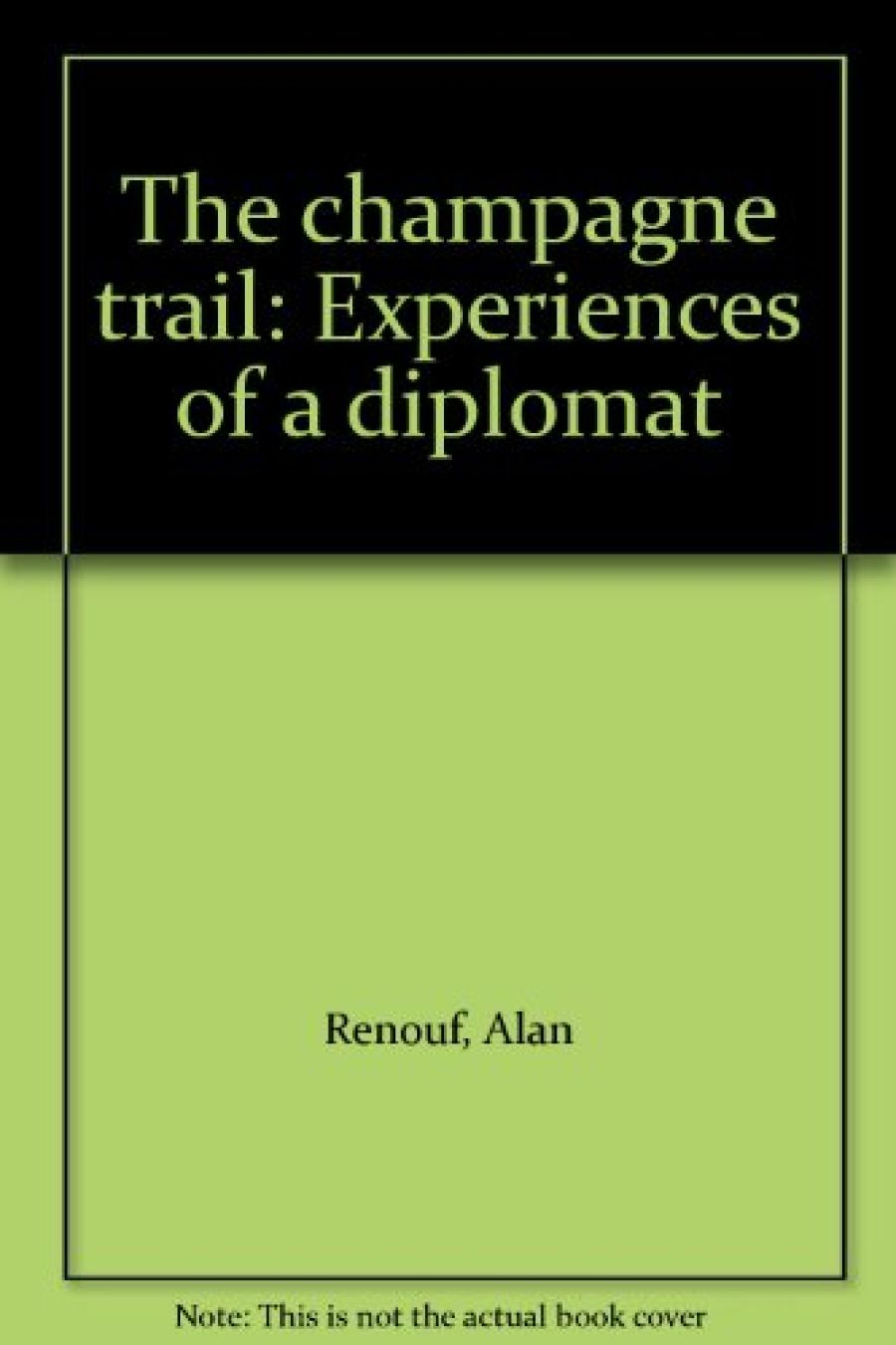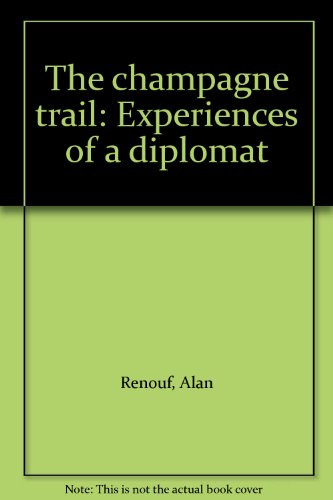
- Free Article: No
- Contents Category: Biography
- Review Article: Yes
- Article Title: Light and Frothy
- Online Only: No
- Custom Highlight Text:
The obvious cliche to describe this book is ‘light and frothy’. The beer connotation is more apt than the sparkle of champagne conjured up in the title.
Alan Renouf traces in more or less anecdotal fashion his career as an Australian diplomat. There are very readable, if almost glib, passages about his experiences at overseas postings and at home in the public service. These are interspersed with commentaries on the exasperating job of running the Foreign Service Department, the long list of duties and responsibilities entrusted to diplomats, and the declining state of the Australian Foreign Service. Some of this is highly interesting, but the book’s uneven pace and the abortive attempt at sparkling wit do little to enhance the author’s distinguished reputation.
- Book 1 Title: The Champagne Trail
- Book 1 Subtitle: Experiences of a diplomat
- Book 1 Biblio: Sun Books, $4.50 pb, 153 pp
- Book 1 Cover Small (400 x 600):

- Book 1 Cover (800 x 1200):

Nevertheless, one is drawn to the book like the voyeur to the keyhole. Intimate glimpses of notable Australians, their public personae unmasked, disclose more rounded human beings. Paul Hasluck is revealed as a solid, reliable, decent, and introverted person whose loyalty to country and dedication to work were marked without fanfare. On close-up, his public image of dullness and lack of imagination proves a one-dimensional distortion.
The vignette of Dr Evatt shows him to be brilliant and fascinated with ideas, as well as diligent and capable in the pursuit of noble ideals, a figure highly respected in international circles. This was the image he displayed to the public at the time, but his behaviour amongst associates and underlings, even during the Curtin and Chifley years, manifested signs of deviousness, bad temper and excessive suspiciousness.
Percy Spender emerges with high marks. ‘Australia has never had such a doughty and effective proponent of her national interests in the US as Spender’. This accolade is then supported with recollections of some of Spender’s more masterful performances.
R. G. Casey, on the other hand, is likened to the notorious anti-communist witch-hunter, US Senator Joseph McCarthy. Though Casey publicly charged that the Department of External Affairs contained ‘a nest of traitors’, not a single one was ever uncovered.
Menzies is revealed as a mortal who confesses he was nervous every time he had to make a speech (false modesty?). Andrew Peacock comes across as glamorous and nice, but spineless, especially when having to confront his imperious leader. The latter’s actions suggest a character of untrustworthiness, intolerance, authoritarianism, and deep- seated insecurity, but then Renouf had special cause to resent Fraser, who, he felt, had unjustly dismissed him as Foreign Service Secretary.
Whitlam generated great excitement wherever he went, but with all his charm and quickness of mind, he, too, stands out as a very domineering figure, lacking the capacity to work with others. His wife Margaret seems to have been the only person capable of instilling into him a sense of proportion. A couple of quaint stories illustrate the point.
The Whitlam ego led to some grave foreign policy repercussions. His Foreign Minister, Senator Willesee, was bypassed on three critical issues, ostensibly because he was overseas at the time. One concerned the formulation of the policy on East Timor at the talks with President Suharto. Neither Willesee nor Renouf, then the Foreign Secretary, was present at the meeting. Both absentees, according to Renouf, would have preferred that Australia referred the matter to the UN.
Amongst the book’s revolving cast of performers none shows to greater advantage than Dr H. C. Coombs, who is acclaimed for ‘combin(ing) intelligence, charm, fairness and a capacity for persuasion which was unrivalled’. Regrettably, the character least sharply defined is the author. Much of himself is bolted within another room – this one with an inaccessible keyhole.


Comments powered by CComment